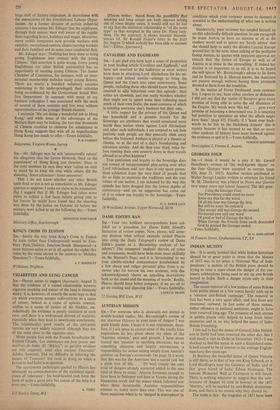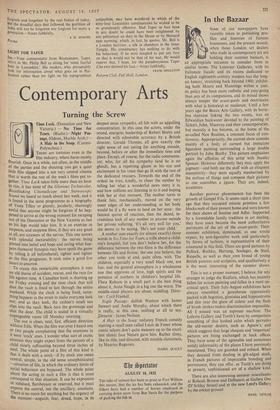INDIAN MUTINY SIR,—II is surely ironical that while Indian historians
should be at great pains to stress that the Mutiny of 1857 was in no sense a 'National War of Inde- pendence,' a section of the British press should be trying to raise a scare about the danger of the cen- tenary celebrations being used to stir up anti-British hatred in India. Such a danger exists only in their imagination.
The recent removal of a few statues of some Britons from public places in a few towns hardly adds up to a 'virulent anti-British campaign.' The removal in fact has been a very quiet affair, and free from any emotional outburst, In fact some of these statues, rather offensive to national sentiment, ought to have been removed long ago. The presence of such statues in public places only helped to keep fresh bitter memories and in no way helped the cause of Indo- British friendship.
I felt sad to find the statue of General John Nichol- son in Delhi had been removed the other day. But I well recall a visit to Delhi in December, 1912—I was shocked to find the statue in such a dilapidated state. It had ceased to be of interest to the average English- man forty-five years ago.
In Bombay the beautiful statue of Queen Victoria is still there, so is that of her son King Edward, so is Lord Hardinge's near the Gateway of India, and of that 'great friend of India' Edwin Montague. The famous Memorial Well at Cawnpore is still intact. There is nothing whatever to suggest that the cele- brations of August lb next in honour of the 1857 'Martyrs,' will be marked by anti-British demonstra- tions, and there is no reason why they should be.
The truth is this : the tragedies of 1857 have been
forgiven and forgotten by the real Indian of today, but the dreadful days that followed the partition of India will not be forgotten nor forgiven for many a generation.—Yours faithfully, Poona
J. D. JENKINS































 Previous page
Previous page